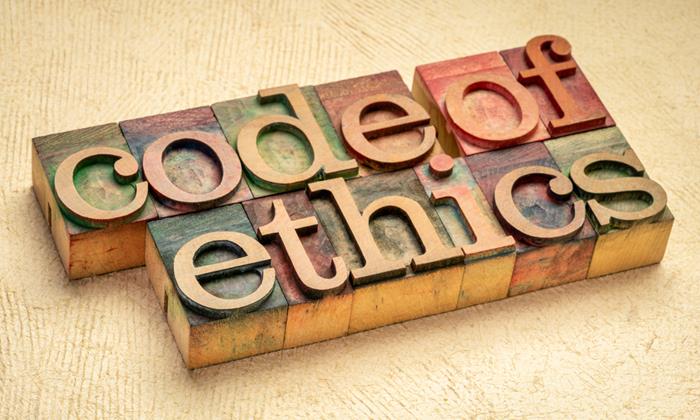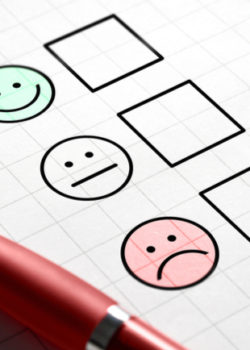Having a code of ethics is one thing. Knowing how to make ethical decisions is another. And while the FTSE 100 appears to be doing well on the first count, they lag behind on the second.
A new report from the Institute of Business Ethics (IBE) finds that the number of “code of ethics” holders has increased by 10% from 81 to 88 among the country’s biggest firms.
But only a third have a framework to help employees make ethical decisions. The IBE is now calling on companies to introduce decision-making frameworks or guidance to help support workers.
Mum’s the word
Frameworks help staff by promoting key questions, such as “Is it legal?”, “Would I feel comfortable explaining my decision to my colleagues, family and friends?” or “What would my mum think of this?”
The IBE’s director, Ian Peters, says businesses with a code of ethics plus a decision-making framework are “much better placed to succeed”.
“A code of this should be the cornerstone of any business. Used correctly, a code supports a healthy culture and reassures customers the business will do the right thing for the right reasons.
“Within that code should be a process to support ethical decision-making, and it is disappointing to see so many businesses lacking this key tool.”
When it comes to decision-making questions to ask, legality was the most popular, followed closely by whether a decision would be “consistent” with a firm’s policies and values.
Least popular was whether a decision could be viewed as setting as example. The IBE suggests it is a good question for employees to ask themselves because it “personalises” their decisions. “It also reminds managers that they are role models, as many codes of ethics emphasise.”
Governing bodies
The IBE says decision-making frameworks should include two types of question: “head and heart”. The first are designed to push the decision-maker to consider compliance: an analytical approach. The second are designed to elicit an emotional reaction.
At the beginning of the year, the IBE revealed that it was the retail sector that seemed to be struggling most with ethics after the institute’s news survey revealed that this sector had attracted the highest number of ethically adverse stories. This was ahead of the banking and finance sector.
The cost of living crisis led to a number of issues for retail including, among others, the treatment of employees and customers.
Elsewhere, one of the biggest causes of negative ethics coverage came from failures in the area of diversity and inclusion, with the year presenting a number of high-profile discrimination stories.
Ethics inside an organisation can sometimes be tricky. Often the right answer is clear but there are many sources of pressure to send people down the wrong path. Yet in an age when the social context of business activity is well established, sound ethics are a prerequisite. A solid code of ethics and a readily available decision-making framework seem like a good starting point.





